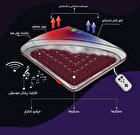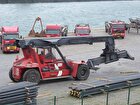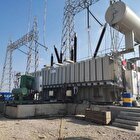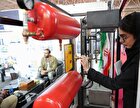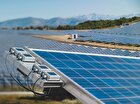Iranian Entrepreneur Highlights Importance of Focusing on Recycling ‘Dirty Gold’

Ahmad Salsabili, the managing director of an Iranian knowledge-based company, told ANA that if wastewater treatment techniques are implemented, the country will reap benefits in the long run.
“The country should move with all the strength toward treating the ‘dirty gold’ and we have no other choice in this regard,” he added.
Sewage sludge, wastewater, and liquid manure are valuable sources of fertilizer for food production. Researchers have developed chemical-free, eco-friendly processes that enable the recovered salts to be converted directly into organic food for crop plants.
The world’s wastewater – 80 percent of which is released into the environment without adequate treatment – is a valuable resource from which clean water, energy, nutrients, and other resources can be recovered, according to a World Bank report.
Wastewater treatment is currently carried out all over the world to reuse water resources and cope with water shortages.
For instance, in Europe, 60 percent and in Slovakia 65 percent of municipal wastewater is re-treated and returned to the cycle, while the African countries of Chad, Somalia, and Sudan reuse less than 5 percent of wastewater.
Mohammad Reza Bakhtiari, the former managing director of Tehran Water and Wastewater Company, said some 6.8 billion cubic meters of wastewater is produced annually in the country, but just 1.8 billion cubic meters are treated.
So, the need for the cooperation of knowledge-based companies to treat one hundred percent of wastewater in cities is seriously felt, he noted.
In recent times, however, farmers have been faced with a growing shortage of fertilizers, and the price of phosphate-based fertilizers has been steadily increasing. It is therefore high time to start looking for alternatives.
The treatment of wastewater is very valuable and profitable for recovering fertilizers that can be sold at one-tenth of the price of imported fertilizers.
We must adhere to the global motto of use less, use right and recycle, Salsabili pointed out.
Strengthening knowledge-based companies are on the agenda, raising hope for reducing obstacles on the path to development.
Currently, nanotechnology products are produced and marketed in more than 15 industrial fields based on domestic technologies and are being exported to 49 countries from five continents.
Over the past year (ended March 20), the total sale of Iranian nanotechnology products has been equal to 115 trillion rials (nearly $425 million).
The expansion of nanotechnology export programs in recent years and the establishment of bases for exporting nanotechnology products to China, India, Indonesia, Syria, Turkey, and Iraq have provided the opportunity for the entry of Iranian nanotechnology goods, equipment, and services into global markets.
4155/g

